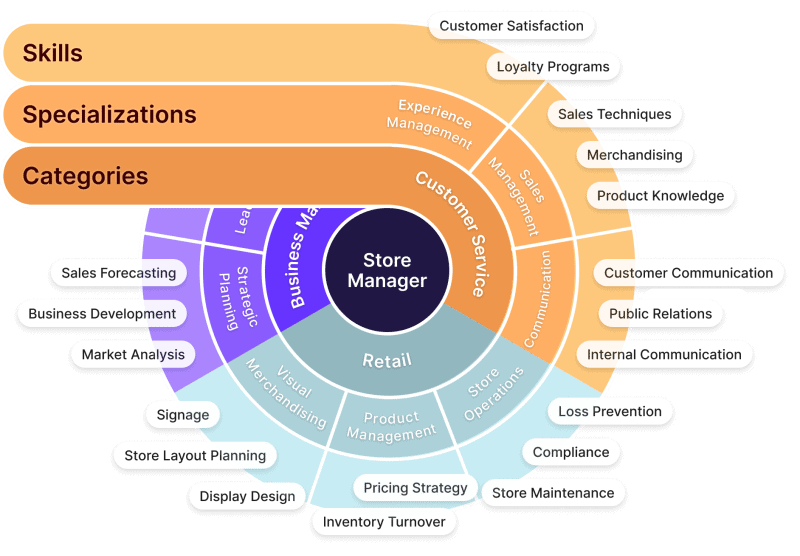Losing people is the biggest issue for every organization that wants to grow fast and be competitive. Fixing this requires several steps and it starts from the top. This article is about my experience managing 250 people.
Let me tell you what I would do today
Everyone likes to say that at his company you can grow and progress into further roles, responsibilities and join the exec team. Most of my friends that run a company will tell you that if you ask them and so I did/do if you ask about my company. The reality is that not many companies really spend time and energy on developing their people and creating a culture where people have a clear path.
10 years ago I was among the founders that thought that developing people, career paths and everything else you usually hear from your HR leadership were not as important as hiring the best of the best and build an amazing product.
Today, while starting a new company, I spend a lot of time thinking about what this future organization will do in terms of growth and development for our people and how we can make it a priority in our principles from day 1.
Why did I change my mind?
There are multiple reasons, but I will give you the most important one: every time we lost a great team member I felt like our company stepped 6 months back in our roadmap and plans. I really felt like that way, and I was not even looking at the cost of that event. When you lose someone in a key project there are a lot of hidden advantages that you immediately lose: other team members will wonder why that person is leaving and the overall morale of the team will decline. Some other times that person had a strong understanding of the project/problem he was working on and it will take you months to rebuild the same level of knowledge with someone.
I am pretty sure we spent $3-$4M in total lost business with people that left our business because they did not feel they had a path for them or that they could learn more at our company. And this is for a tech company doing about $30M/year, so not a large business. Smaller companies are usually even more impacted because losing people means not being able to keep delivering specific services or tasks, with various type of impacts on customers.
How do I know that? My HR team was constantly sharing with me exit interviews and I was often surprised about how people felt and why they left. It was brutal: I had no idea, as CEO, that some people felt stuck in their role or had a specific concern of it that we knew nothing about.
On top of that, losing an engineer, a marketing manager or a sales leader that spent at least 2 years with us always meant losing 2+ of product and market knowledge. They were aligned with our culture, they knew our principles and so on. Replacing that person has an immense cost on your company. A good way of calculating that in my mind has always been: 1 year lost in terms of time (3 months to find a new person, 6 months to onboard her and other 3 months to see her being impactful in her job), assuming we find the same level of talent. If your person was in sales, customer success or marketing, you should add losing customer relationship and understanding of your competitors and industry. I am not considering the fact that many roles require external agencies to find them.
Let’s say you lose a Director of Sales making $150K/year, what you have really lost – in terms of money – is probably much closer to $500K if that person resigns after 2 years. You will need to find and hire a new one and start over in terms of everything we discussed. It’s brutal. And the consequence is that your business gets the most impact and slows down.
People leave companies. Why they leave is what you should worry about
“People leave companies” – as a founder or executive you need to get used to that. People move on, find new careers, jobs and opportunities and sometimes there is nothing you can do. It’s normal and that’s how it works.
Every time we have lost a key person in our team I tried to find out why. Did we do everything we could? Sometimes the answer was no and our mistakes were somehow always one of these reasons:
- No career growth – the most important one: that person did not have a clear understanding of what was next for him. He did an amazing for 1, 2 or 3 years and then he simply stopped believing. We did not invest in building a path for him and talk to him about it. This is the most common way to lose great and senior people that did a lot for your company and don’t feel rewarded enough with a clear path forward. I did the mistake of increasing salaries without working on this aspect and people left anyway. It took them longer but in the end, they couldn’t use money to justify the lack of a path.
- She burned out: a classic. Great people will tend to naturally go to the extra-mile and they usually don’t like to complain. We pushed them too hard and too far, and they simply burned out. We ignored signals: asking for additional people, kindly telling us there were issues.
- Bad management: a common one. People leave their manager. I picked the wrong managers several times and when I didn’t remove them in time (which I did not in a few cases), I started losing the best people in the team.
- Salary: this happens as well but as I said in our first article here, it’s not the most common reason and sometimes is also an excuse people tell themselves, the reality is somewhere else.
- They stopped believing/having fun: similar to point 1. It happens especially in companies where leadership and culture are not great or in very political environments. People start with all the best intentions but they can’t simply put up with that anymore at some point and they quit.
I quickly discovered that there were two reasons why, as CEO, I couldn’t see some of these things happening inside our organization.
Investing in people when it’s too late
This is quite typical. You promote people, offer them raises and define a career path when they give their notice. I’ve been there and so many C-levels in the tech space like in other industries. The reality is that there is little to do at that point: in some cases you end up offering more money to someone that will leave anyway.
Investing in your people is a weekly or daily task and, as CEO, your job is to build the culture and the accountability for the entire team to work with this in mind. Defining a career path for your positions should be the standard for every new job position you open, as well as for existing people. But things don’t end with the career path: you constantly need to have your management working with their people on setting clear goals for them and help each single person define how to achieve them. Not every manager knows how to do this, and not everyone believes in this type of approach: that’s why the CEO needs to set the bar on this approach.
In my experience this is something that needs to be discussed with your management team every month: how people are doing, how many people we are promoting and what’s the risk for key areas of the business. The moment I started to discuss this with my management team we started discovering problems and trends that were simply invisible before. We still had situations where people would leave and we couldn’t see that coming, but in many cases we knew we had people to work on and we were able to define a path for them or move them into new roles before it was too late.
Promoting people helps you retain more people in your org
The biggest thing that happened to me after a few years working on a framework to grow and promote our people was absolutely unexpected: the entire organization started noticing our approach and they were not only staying more but sometimes they declined other offers because we had a culture of growth.
Simply put, people understood that putting in the right effort and dedication would have helped them progress and grow inside our organization because they were seeing other people going through that.
I discovered this because a few of my direct reports mentioned it: people were excited by the idea of growing inside the organization and taking more responsibilities and they knew it would happened at some point.
When to start
As soon as possible, ideally as soon as you have 10 people in your organization. Starting soon gives you the advantage of making this aspect a strong part of your culture, something that becomes more difficult as the company expands.
Looking back, I think we should have spent much more time discussing how to start developing our people once we crossed 50 employees: at this point usually there are enough managers (and problems) to start working on a more clear and documented path for each role. It’s also a great investment to let you scale the business to 100-200 people, a stage where things will change anyway and your culture will need to adapt to it.
While not ideal, implementing a strategy to develop and promote your people is always a great idea, even when you have 500+ people. People will naturally look at that as a great sign and will value it much more than any other benefit or salary increase.
A great financial investment for your company
At Anthropos we will likely approach things in a very different way compared to our previous experience. That’s not only because helping people grow is our core business but also because we will save millions retaining people and growing them into core members of our company.
The reason why I say this is because most entrepreneurs and C-levels still look at this as an HR-problem and a cost, more than an investment. There have been at least 3-4 times over the last 10 years where I would have needed to retain specific key people that left. I am thinking of a critical VP that left the org while we were finally scaling our B2B business or several engineers that would have been amazing product leaders if we would have invested more in their career growth. Retaining those people would have helped saving money and would have accelerated our business.
November 14, 2022


